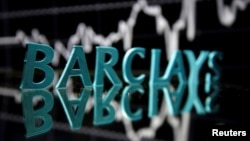Eleven of the world's biggest banks pledged on Tuesday to find out how much exposure they have to risks related to climate-change, a move backed by environmentalists who say better information on the costs of global warming will push lenders to transition towards green investments.
With more than $7 trillion under management, some of the biggest names in global finance have signed onto the United Nations-backed disclosure effort for information on new risks presented by climate change.
Information on banks' climate risks could eventually be reviewed by regulators as part of their financial disclosures, said Simone Dettling, a researcher with the U.N. Environment Program working on the transparency plan.
"The goal is to shift lending away from carbon intensive sectors that are becoming risky towards green technologies that are becoming more attractive," Dettling told the Thomson Reuters Foundation in a phone interview.
Before banks can change their lending patterns they need to understand how their portfolios will be impacted by climate change. Most currently do not have this information, Dettling said.
"They have committed to finding these numbers," she said of the voluntary plan.
Once banks have information on their exposure to climate risks they can begin disclosing how these risks will impact investors while looking for new sustainable alternatives, she said.
That disclosure could happen within the next year, she said, although banks and U.N. officials are still hammering out the details.
Information on investments in fossil fuel firms, renewable energy businesses and transportation companies is likely to be among the data disclosed as part of banks' climate-risk assessments, Dettling said.
Banks backing the plan for new research into climate risks include ANZ, Barclays, Bradesco, Citi, Itaú, National Australia Bank, Royal Bank of Canada, Santander, Standard Chartered, TD Bank Group and UBS, said the U.N. Environment Program.
"The scale and sophistication of climate risk and opportunity continue to grow," Citi Bank spokesman Ed Skyler said in a statement on Tuesday. "Working together to refine our approaches to enhanced disclosure will help accelerate the transition to a low-carbon economy."









